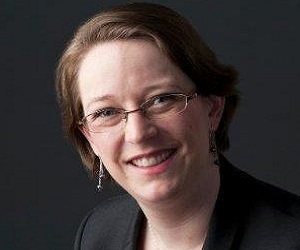In 2008, UK human rights barrister,
John Horan, was ordered by the Bar Standards Board (BSB) not to accept instructions involving advocacy in the higher courts and forced to give notice in writing of his medical history before accepting instructions to appear as an advocate in the lower courts.
Why? Because a stroke he suffered in 1999, which impaired his speech (but not his intellect) was deemed problematic by a single judge, who issued a formal complaint to the BSB.
"I cannot describe how undermining and soul-destroying the original BSB decision was – having to write to my client and the judge or employment judge in every case that went to court or tribunal," wrote Horan.
The ban has since been lifted after a successful appeal in 2010, but Horan’s case nevertheless provides a worrying insight into the perception and treatment of disabled lawyers within their own profession.
While exact statistics are impossible to come by in New Zealand, the general consensus continues to be that disabled lawyers are not proportionately represented when compared to the percentage of disabled persons in the general population (which, according to
Statistics New Zealand, is as high as 24%).
However, while Horan’s case may indicate otherwise in the UK, disabled lawyers and advocates in this country say the issue is less about direct discrimination and more about a lack of flexibility within the profession.
Chen Palmer senior associate, Claire English, who was born with Cerebral Palsy, has maintained a successful career in employment law since 2002. While she believes her condition has offered her some unexpected positives, she admits she’s had to work extremely hard – possibly even harder than her able-bodied peers.
“My disability has been with me for life, so it’s something that has always been a part of me,” she tells
NZ Lawyer. “I like to think it’s given me some coping mechanisms along the way. It’s certainly, I think, helped me generate a little bit of a thicker skin.”
However, English says there’s one thing missing: Other disabled lawyers.

“I would have thought that the law could potentially be a very rich area, a very rewarding area, for people with disabilities, because law is an area where you’re always dealing with the new and unusual,” she says.
“I would have imagined that there would be many disabled people who have the life experiences to really get the most from the law and to be imaginative and offer different types of experiences to their clients. And, of course, law is a sedentary role.”
English says she’s never once been directly discriminated against by any of her past or current colleagues – a fact which she says demonstrates the strength of the profession as whole – and that the dearth of disabled lawyers likely stems from the way the legal sector itself is structured.
“I suspect that one of the big problems that the law is facing at the moment is a structural challenge, in that it’s not perceived as welcoming if you don’t fit the…’traditional’ mould. There is still the pressure for billable hours, there’s still the pressure for face time, there’s still the pressure to fit the traditional mould of a lawyer who works long hours and has no other commitments.”
Neera Jain, manager of the Auckland Disability Law Centre, which provides support and services for lawyers and law students living with disabilities as part of its overall offering, agrees that the issue is largely a structural one, but says a lack of positive role models and access to tertiary education are also factors.
“I do think that one of the challenges in New Zealand is a lack of good case examples, and testing of what is meant by ‘reasonable accommodation’,” she says. “I think employers are challenged by thinking about how it might work to employ a person with a disability, especially if they’ve never done so before, or don’t have a lot of experience with the sector.”
In a competitive workforce, says Jain, it’s often tempting for employers to go with the path of least resistance.
“There is also a myth that workplace accommodations are expensive. In most cases accommodations are free and are simply about providing flexibility or reorienting a workflow, or there may be a one-time cost for equipment that may be subsidized.”
In terms of combatting the issue and encouraging more disabled individuals into the profession, Jain believes basic recognition that there is in fact a problem is key.
“Recognition from employers of the benefits of including disabled people in their firms and a commitment to include people with disabilities in their workforce…allows people with disabilities to realise their potential and enter professions where their perspectives are badly needed. We know that disabled people are over-represented in prison populations and that many disabled people experience barriers in accessing justice.
“There is a great quote from Neil Marcus, a disability activist from the United States:”
‘Disability is not a ‘brave struggle’ or ‘courage in the face of adversity’. Disability is an art. It is an ingenious way to live.’
“People with disabilities are forced to be creative every day as they interface with a society that is not fully accessible to them,” says Jain. “They are innovative and bring a unique perspective to everything they do. The legal profession would be strengthened by including more disabled people in their ranks.”

